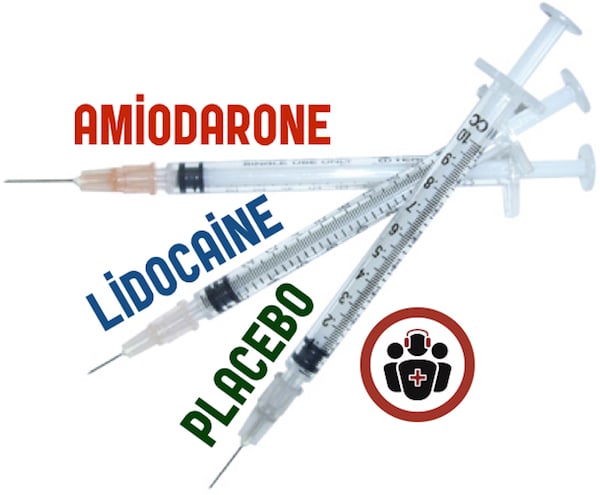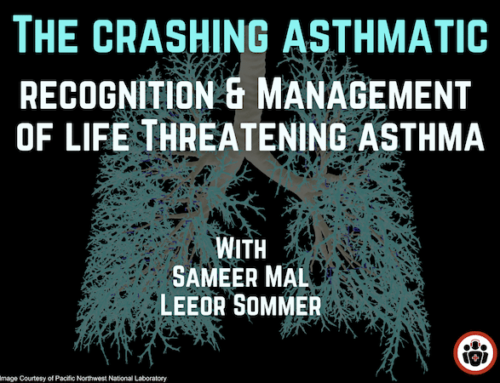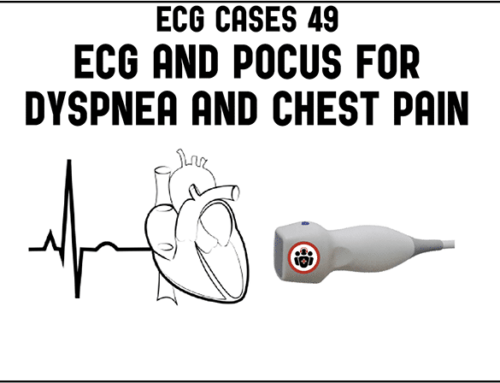Journal Jam 7 – Amiodarone vs Lidocaine vs Placebo in Cardiac Arrest: The ALPS Trial. In our most popular EM Cases episode to date – ACLS Guidelines Cardiac Arrest Controversies, we boldly stated, that there has never been an antiarrhythmic medication that has shown any long term survival benefit in cardiac arrest. The use of medications in cardiac arrest has been one of those things that we all do, but that we know the evidence isn’t great for. Yet Amiodarone is still in the newest AHA adult cardiac arrest algorithm for ventricular fibrillation or pulseless ventricular tachycarida – 300mg IV after the 3rd shock with the option to give it again at 150mg after that. Anti-arrhythmics have been shown in previous RCTs to increase the rate of return of spontaneous circulation and even increased survival to hospital admission, however none of them have been able to show a decrease in mortality or a favourable neurological outcome at hospital discharge. In other words, there has never been shown a long term survival or functional benefit – which is a bit disconcerting. But now, we have a recent large randomized, controlled trial that shines some new light on the role of anti-arrythmics in cardiac arrest – The ALPS trial: Amiodarone vs Lidocaine vs placebo in out of hospital cardiac arrest. In this Journal Jam podcast, Justin Morgenstern and Anton Helman interview two authors of the ALPS trial, Dr. Laurie Morrison a world-renowned researcher in cardiac arrest and Dr. Paul Dorian, a cardiac electrophysiologist and one of Canada’s leading authorities on arrhythmias about what we should take away from the ALPS trial. It turns out, it’s not so simple. We also discuss the value of dual shock therapy for shock resistant ventricular fibrillation and the future of cardiac arrest care.
Recorded June 2016. Published July 2016
by Anton Helman (@EMCases) & Justin Morgenstern (@First10EM)
Cite this podcast as: Morgenstern, J, Helman, A, Morrison, L, Dorian, P. Amiodarone vs Lidocaine vs Placebo in Cardiac Arrest: The ALPS Trial. Emergency Medicine Cases. July, 2016. https://emergencymedicinecases.com/amiodarone-vs-lidocaine-vs-placebo-alps-trial/. Accessed [date].
Dr. Dorian, Dr. Helman, Dr. Morgenstern , and Dr. Morrison have no conflicts of interest to declare
References for Amiodarone vs Lidocaine in Cardiac Arrest
Kudenchuk PJ, Brown SP, Daya M, et al. Amiodarone, Lidocaine, or Placebo in Out-of-Hospital Cardiac Arrest. N Engl J Med. 2016;374(18):1711-22. Abstract
Kudenchuk PJ, Cobb LA, Copass MK, et al. Amiodarone for resuscitation after out-of-hospital cardiac arrest due to ventricular fibrillation. N Engl J Med. 1999;341(12):871-8. Abstract
Dorian P, Cass D, Schwartz B, Cooper R, Gelaznikas R, Barr A. Amiodarone as compared with lidocaine for shock-resistant ventricular fibrillation. N Engl J Med. 2002;346(12):884-90. Abstract
Herlitz J, Ekström L, Wennerblom B, et al. Lidocaine in out-of-hospital ventricular fibrillation. Does it improve survival?. Resuscitation. 1997;33(3):199-205. Abstract
More FOAMed Resources on the ALPS trial & Cardiac Arrest
Sancrit on the ALPS trial
EM Nerd on the ALPS trial
Ryan Radecki – EM Literature of Note on the ALPS trial
EM Cases episode on ACLS 2015 Cardiac Arrest Guidelines with Dr. Morrison





Great discussion, thanks. One small, but crucial detail regarding the definition of p-value: at time 24:35 the speaker states “the p-value is less than 0.05, meaning there’s less than a 5% probability that that difference arose by chance.” This is a common mis-definition of p-value. What the p-value actually means is “if the null hypothesis were true (ie no difference), then there is a 5% chance we could see a difference this great based solely on chance.” The p-value alone does not tell us the probability that our results arose by chance. In other words, a p-value of 0.01 does not mean that there is only a 1% probability that our results by chance.
seriously just love these podcasts! thank you